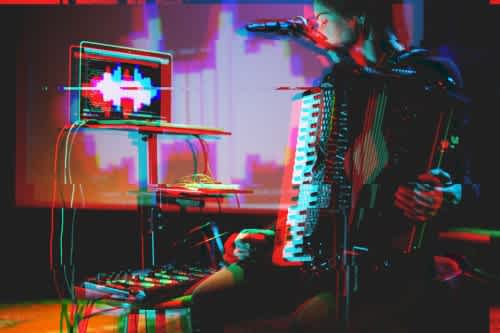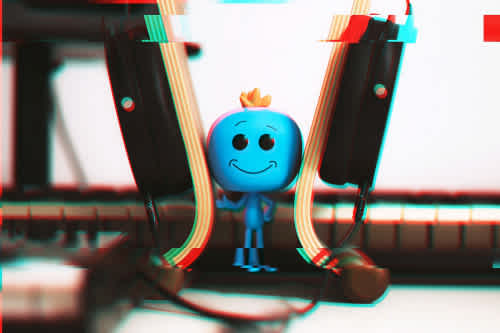I recently started reading Geeks Bearing Gifts written by Ted Nelson, one of my favorite writers and tech philosophers. In a nutshell, this book is Nelson’s own interpretation of computer history. The subtitle, “How the computer world got this way”, intrigued me from the first second. And from the moment I dove in, I knew my conceptions about technology’s evolution was about to be remodeled.
In his book’s summary, Nelson says:
“This book is a brief introduction to today’s computer ideas — mainly software — and where they came from […]”
“With an emphasis on disagreements and conflicts.”
He then starts strong by writing:
“We are prisoners in a fantasy world built of incompatible pieces and broken dreams; and this is called ‘technology’, so nobody questions it.”
Right from the start, Nelson touches on a timely issue: people tend to take technology for granted. And the more impressive the technology, the more people rely on it blindly, as if it’s a given that things should just work.
But more on this later.
The part in Nelson’s book that really got my brain cells working (and seeded the idea for this article) is in the chapter Alphabets, where he reminds us how writing evolved across cultures, and how we transposed it to computers, first with ASCII and now with Unicode.
In the section titled “The Unicode Fight, Across The World,” he explains that Unicode expanded the number of encoded characters by a large number compared to ASCII. However, it’s still limited when we think about all the characters that exist in the world (if we don’t leave out the dialects from small communities and tribes).
He writes:
“Unfortunately, social and language issues are tied up with writing, and this means that key issues of cultures worldwide are being thrown to Unicode committees. Language issues worldwide are now being decided by tekkie committees — with a harsh impact on the traditions of many cultures.”
With this statement, he reminds us that, as people possessing the power to create technology, we also have the power to shape our society’s sense of identity.
It seems like it all happens without us noticing it.
We all saw the evolution of the emojis culture (at least if you’re 30+). Remember how no one took it seriously at first? I remember the time when using too many emojis was frowned upon. Now? I regularly reply to a message using only an emoji.
So the evolution of technology impacts our culture. Is that a problem? No, in its essence, I don’t believe it is. But I think it becomes a problem when we unconsciously delegate power over these decisions because we, as a society, don’t take the time to reflect on how we want technology to shape our culture.
Developers are at the front row of technology’s evolution, but the high tech world needs a bridge to the general public, since they’re using tech that developers create on a day-to-day basis. We need to get people involved in the decisions we are making, somehow, because these decisions have the power to affect all of us in the future.
But to get people involved, they need to be interested. And that can be challenging. Since reliance on technology has increased, people now more than ever take it for granted. This sense of magic, of awe people used to have towards computers is now almost nonexistent.
So we have devs and engineers on one side and the rest of the population on the other. An increasingly small group of people is making important decisions for our future, and for our cultural identity. Open conversations need to take place and involvement from the general public must increase.
What has the power of bridging this gap between those two worlds? What could get the general population curious and involved?
Personally, I believe Art can.

A medium of expression like live coding allows us to open up the box for all to see. We can bring code to a relatable level– by humanizing it – and show how it’s not about the coldness of a machine, but about how we use it, understand its language, and communicate with it.
There’s something powerful in giving an emotional experience with a medium like programming, considered by the wide public as cold and emotionless.
For many people, programming is something completely foreign and mysterious. Their computer just works without a thought of why it works and who hides behind the fact that it does.
But could an artistic practice using code be the perfect way to bridge this gap and to open up much-needed conversations? What if artists of code have a job that is not only there for our entertainment, but crucial for shaping the way technology is understood and used by the public?
And what if by using code as an art form, programmers could not just have a way to play with code, but also to share their passion with the non-tekkies (as Ted Nelson would say) around them? And what if this action of sharing our passion for programming in a way that’s fun, accessible, and relatable could have, in the long run, a long-lasting positive impact in our society?
Now, more than ever, we are heavily relying on tech to keep us all connected. We are creating a new reality, a new future, one where connectivity has never been so important.
People who have an affinity with technology have everything they need to thrive, while others feel increasingly frustrated and disconnected from the world.
As programmers, developers, or engineers, we can help. We can open doors for people to become an active part of this evolution by first raising interest and curiosity.
And the best way to do that is through artistic expression, because it’s the easiest way to people’s hearts.
...
Mynah Marie has a new podcast series called Earth to Abigail: Live Coding Radio, where she, with her guests, discusses the life of a live coder, the creative process, and tells stories from live coding experiences. Check them out!


